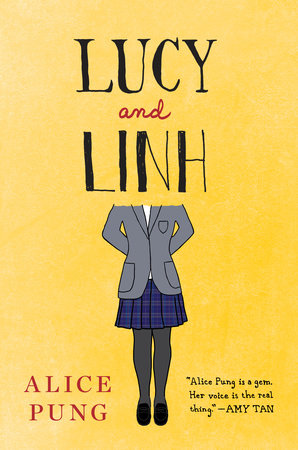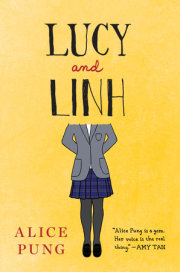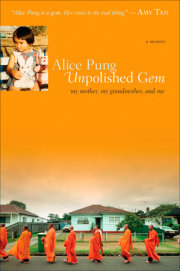Dear Linh,
Remember how we used to catch the 406 bus after school, past the Victory Carpet Factory and the main hub of Sunray, through to Stanley? What an adventure, we used to think then. What a waste of time, looking back now. It was a waste of time because the bus would always worm its way back to Stanley, following exactly the same route, stopping at the same places and collecting the same people, who did the same things every same day.
Remember that girl from St. Claire’s who put her bag on the seat next to her so that no one else could sit down? And how we thought, typical of girls like that. When she got the vibe that we were talking about her behind her back, she turned around and told us to get stuffed. But that wasn’t the most shocking thing about her. The most shocking thing was that where we had expected to see white teeth all even like a picket fence, they were herded behind that ugly gate in her mouth. Looking into that paddock of crumbly yellow rocks straining to break free from barbed wire, I thought, no wonder you’re going back to Stanley.
This is how I see it now. An old strip of seven shops, each with an identical metallic snake of a roller shutter coiled at the top. At night, with those iron blinds lowered, the street looked like a long, continuous, dirty warehouse, all graffiti and concrete.
There was the local fish-and-chips shop, the Happy Oyster, which had never seen an oyster, joyous or otherwise, from the first day of its existence. A shop selling smokes, with incredibly expensive and lewd painted plaster figurines in its window—women with serpents and black leather straps instead of clothes. And a hairdresser that still called itself a barber, with a red, white and blue pole at the front and posters in the window of great haircuts from 1983.
The largest shop was the convenience store that tried to pass itself off as a mini-mart, with faded packets of instant noodles and cans of soup not seen in a proper supermarket for years. The whole strip could probably rustle up only two or three trays of vegetables. The place that got the most business was Stanley Spirits on the corner. People went there mostly to get beer—half a dozen cans of VB at a stretch,
VB standing for
Victoria Bitter, which could also express the sentiments of the male residents of Stanley aged between seventeen and seventy. My mum never bought anything from this strip. Instead, she caught the bus to neighboring Sunray and its market, where she could get tomatoes for a dollar a pound if she went near closing time.
Ours was the only blue house in Stanley, and I don’t mean a pale blue washed out with a lot of white. I mean blue the color of that bubble-gum-flavored ice cream all kids love until they get older and find out how many chemicals are in every scoop. Now I feel the same way about our home. But when I was younger, I loved how it stood out; it was the kind of house a kid would draw, a rectangle in blue and a triangle in red.
To our left were the Donaldsons, a lovely older couple who owned a Dalmatian that barked at all hours of the day. They’d come over once a year, two days after Christmas, to give us cake and handfuls of chocolates that tasted like brown crayons. A few months later, at Chinese New Year, Mum would ask me to walk over with coconut sweets or spring rolls, and sometimes I’d bring moon cakes from the Lunar Festival. “Aren’t you a sweetie,” they’d say.
The Donaldsons’ house was white, and its cement-rendered front was not pimpled with mold. They had a carefully maintained garden of bougainvilleas, cacti and fuchsias, and an upright mailbox—no small feat in a place like Stanley, where teenagers would drive by with cricket bats, in cars that they’d buy for two hundred dollars and spend two thousand tricking out. Most of the mailboxes in Stanley leaned to one side, as if wincing from their blows.
The most enchanting thing about the Donaldsons’ house was this: around their front yard were seven little gnomes and a toadstool, each partly hiding behind a flowerpot or shrub. The kids who loved to smash everything that was standing never touched the Donaldsons’ peekaboo gnomes.
That’s what I see, Linh, but I also remember that our closeness to the Donaldsons didn’t stop the kids from knocking over our mailbox. Once they even chucked a rock through our front window. I suggested to my father that it was because our blue house was such an irresistible target, but no way was he going to repaint it. When we first moved in, my father took great care to water the plum tree at the front and the apricot tree at the back. After a while he got too busy and said it was a waste of water. “Let the rain take care of it,” he said, but the rain was as half-arsed in its dripping as everything else around here, and eventually the apricot tree dried up. The plum tree survived but bore sour pellets.
Mum spent most of her days indoors, only going out to shop and collect the mail from our mailbox, or to attend church. She’d always wanted me to go to a Catholic school, which was how I ended up at Christ Our Savior. My father, who didn’t really believe in God—not since most of his family went missing, presumed dead, in Vietnam—wanted me to win a scholarship to somewhere else.
He also wanted me to stop wasting time doing things for the neighbors and to start hunkering down. “Why do you always interfere with her homework?” he asked my mother. “Where were you when your god was handing out the brains? Holding the door for everyone?”
He wanted me to get out of Stanley. He wanted me out of there for my own good. Where we lived was not a place where good stories began, but a place where bad stories retreated, like small mongrel dogs bitten by much larger, thoroughbred ones.
Reading back through this first letter to you, I can see I knew even then that where I was going, you were not coming along, and that I would have to leave you and all of this behind. But I did not understand then, as I do now, how difficult it would be to create a thoroughbred from mongrel stock.
Copyright © 2016 by Alice Pung. All rights reserved. No part of this excerpt may be reproduced or reprinted without permission in writing from the publisher.









